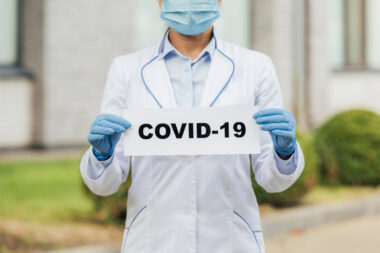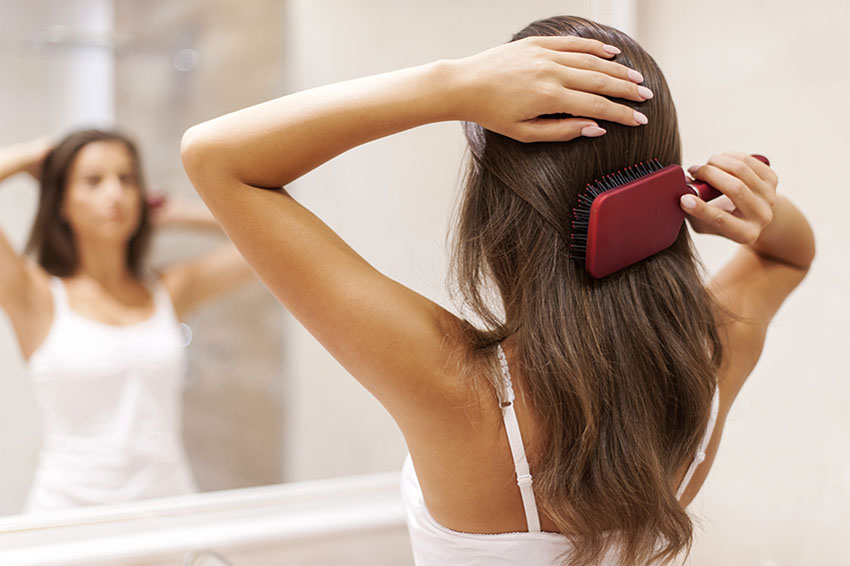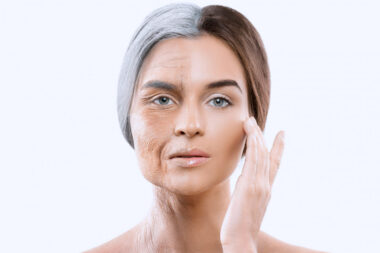Hair loss can happen from several causes like genetics, aging, hormones, and even stress. But while balding is typical, with an average of 56 million people suffering from hair loss – that doesn’t mean you are destined to lose your hair.
The good news is those high statistics have fueled research to determine ways to prevent and even reverse hair loss, so let’s discuss the top three.
1. Make Some Lifestyle Changes
Your lifestyle can have a significant impact on your hairline, so eating habits, sedentary lifestyle, smoking, and even stress can all impact your hair health.
It might sound simple, but the whole phrase you are what you eat applies here. Restricting calories, cutting out food groups, or unhealthy eating habits, in general, can all lead to hair loss. Your body needs nutritious foods to fuel your daily bodily functions and support healthy hair. If you want to prevent or even restore hair loss, getting the right foods on your plates (every day) will support those goals.
So what exactly should you be eating for hair health? Here are some of the best foods you should add to your grocery list:
- Eggs
- Avocados
- Fatty fish
- Berries
- Greek yogurt
- Legumes
- Greens
- Peppers
- Seeds
Along with healthy foods, it would be best if you aimed to get in some daily exercise. While it might not seem connected to hair growth, activity is well known to improve blood circulation, improving scalp health. Exercise also helps combat stress which is another major cause of health issues (and hair loss).
And last but not least, cut back on smoking. Studies have found that smoking damages your hair follicles, causing shrinkage and eventual hair loss. While quitting smoking can be hard, there are many resources out there to help.
2. Cut The Stress
Stress causes sudden hair loss by a condition known as telogen effluvium. Telogen effluvium is characterized by excessive hair shedding that comes on suddenly. While this condition is temporary, not finding stress management techniques can prevent hair regrowth from happening.
Now in today’s world, stress has become a badge of honor. It shows you have a busy life, and as you know, we praise the hustle and grit these days. However, long-term stress can cause hair loss and a host of other health conditions like insomnia, immune system suppression, anxiety, and heart disease.
Cutting back on stress doesn’t mean you have to jet off to a meditation retreat. There are more accessible (and closer to home) ways to add a little stress management into your life. For one, try out mindfulness. Breathwork, meditation, and awareness are all ways to decompress and cut back on stress. And meditation is more accessible than ever with apps, free YouTube videos, and local studio offerings.
If meditation is not your thing, you can also try a yoga class, going for a walk outside, or even lunch with someone you care about. Managing your stress doesn’t have to be complicated. It just requires adding some self-care, gratitude, and joy to your days.
Also read: 8 Tips To Help Thin Hair Look Thicker
3. Use Preventive Hair Growth Methods
If you have started to notice some hair thinning or balding, it’s never too late to start a hair growth routine. There are plenty of options out there like laser hats, topical treatments, and even supplements to reduce hair loss and support your hair growth.
a. Topical Treatments for Hair Growth
Minoxidil or Rogaine is one of the most popular hair loss topical treatments on the market these days. Minoxidil is available over the counter and is the only FDA-approved topical treatment currently available for hair loss. Minoxidil will significantly reduce hair loss, but it will require lifetime use to keep your results.
b. LLLT or Low-Level Laser Therapy
LLLT is another popular solution for hair restoration. Laser therapy for hair growth might sound a little scary, but laser caps use cold lasers clinically shown to be safe and effective for hair loss. This hair growth method helps improve oxygen, blood circulation, inhibits DHT production, and helps support healthy hair growth at a cellular level. You can buy an FDA cleared laser cap and use this treatment at home, so it is a convenient option.
c. Hair Growth Supplements
Grabbing a hair growth vitamin is a great way to support your scalp and hair follicle health. While having good hair habits like avoiding heat styling and chemicals can help your hair on the outside, hair loss supplements support healthy hair from within.
Most hair growth vitamins include vitamin A, E, D, and B vitamins to support your hair needs. However, you can also find supplements with added support like collagen, protein, and certain herbs like horsetail extract.
Look, hair loss can be scary, but if you start to focus on ways to prevent current and future balding, you are well on your way to retiring with a full head of hair. The truth is, having healthy hair requires consistency and dedication to your goals. So don’t get discouraged and keep working to encourage hair growth and reduce hair loss.
About the Author
Tiffany Fuller is a writer with a passion for holistic wellness, working for illumiflow, a revolutionary brand dedicated to helping you fight hair loss.
This article is published by our independent team of health and wellness pundits that publish original and informative content to empower readers to take charge of their health and embark on a physically, mentally, and emotionally balanced lifestyle.







































Leave a Reply